If you’re a publisher, that is to say, someone who publishes (and presumably wants to publish) books, then you should do so. It’s a lot of work though, you might not want to be a publisher… Publishing books means finding people to create the books for you, selling those books, and making everyone involved some money. As a publisher, it is in your best interests to develop positive relationships with the authors working with you. If that author should happen to hit it big, your positive relationship means you may get to publish their next book, and the next, etc., recouping the costs you’ve invested in developing their career and making a tidy profit. You know: business.
Part of what damages a good working relationship, or ensures that there will never be a good working relationship, is trying to take advantage of your authors from the moment they think about working for you. Of course, as a for-profit business your allegiance is to the bottom line and trying to make as much money off of this author’s work as possible, but there’s a difference between that and taking advantage of their naivete, their good-nature, or their desire to work in the publishing industry. Following that method, of salary caps and removing the author’s name from the work, no matter how successful an author is with the publisher, the author will eventually realize that they’re not getting their due–either monetarily, or morally–and the author will resent the publisher for it.
So as a publisher, you’ve invested as little money as you could get away with to make an author a star, but created huge resentment on the part of the author, and your contract sucks, and so the author moves along and reaps the benefit of your hard work making them a star from other publishers. Publishers that know how to play fair. Because there is literally no reason for that author to stick with you for the long term, because you’ve made it abundantly clear exactly what you think of them and their work. You’ve poisoned the well, to use a metaphor, and there’s no going back.
Instead, what if you’re not a publisher? What if maybe you were thinking about being a publisher at one point, but it didn’t work out or you decided to go another way, and instead you decided to not publish books but instead, publish proof of concept that could get adapted into other media? What if you became a company that ‘created’ intellectual property and published pitches for films, television, video games, animation, or other comics? Then it wouldn’t matter how little you pay your authors, or how poorly you treat them, or if you set up wave after wave of contract designed to take as much as possible from the ‘creators’ of the work (even though your contracts specifically state that they give up all of their rights, are no longer the legal creators of the work, and you don’t need to credit them if you don’t feel like it). Because you’re not a publisher, you’re not interested in publishing their books going forward. Publishing costs money, keeping books in print costs more money than it’s worth to you. It’s much smarter to just buy (or rent in perpetuity) a concept outright for as little money as you can get away with and disguise that as a ‘publishing contract’. Something along the lines of “you do all the work, I’ll pay you about $50 a page for it, and then if we sell it to Hollywood I’ll cap your earnings and rake in the dough.”
But what if that got too expensive? What if it was too much money to dole out $50 a page and print up these fat 192 page books, sometimes 2 or 3 of them, and because you’re not really a publisher you’re having a hard time selling them anyway? What could you do to just get the intellectual property with less then a tenth of the cash outlay? Say 750 bucks? And you’ve got a year’s “exclusive” to shop it around and generate interest in it and see if anyone will bite, before you offer up a ‘real’ contract (which, as we’ve established, is horrible). Well that’d be a coup, wouldn’t it? As long as you weren’t interested in working with that creator ever again, remember. But don’t worry, there will be a steady stream of folks willing to buy into your act for as long as it takes for you to get the hollywood blockbuster machine going. Hell, they’ll even thank you for it.
But I can do you one better, not-a-publisher.
What if you took all of their media-rights up front, just for the act of dropping a few grand (which will immediately be paid back to you as long as you can rustle up 500 pre-orders through the direct market) to put the book into print, and paid them on the back-end, after the book had ‘turned a profit’? No advance, no payment in exchange for services, just “I’ll print your book and take a good chunk of your movie rights for the pittance it costs to print 2000 copies of your work?” A back-end payment that will never come because you’ve printed barely enough books for the title to break even, and you’ve already ensured that you get paid first… Hell, you don’t even need to publish the things yourself, you can just be a “studio” and let someone else foot the print bill, while you concentrate on doing nothing at all but hopefully raking in the bucks based on everyone’s hard work but your own. Why isn’t anyone doing that?
Or you could just lie to people outright. Take their work, promise payment, conveniently lose contracts. The publishing industry has a proud tradition of shitty fly-by-night scam artists. You’ll lose what little credibility you had left, but hey, the bottom-line is the bottom-line, and you’ve gotta make money. Besides, as long as your lawyer is better than their lawyer (and it is, remember these are poor, dumb, young people you’re taking advantage of) you can do whatever you like and get away with it for a very long while indeed. Worse people that you have done it and gotten away with it.
So, do you want to be a publisher? Or not? Your choice.
– Christopher


This article sums up pretty completely why I’ve elected to go indie rather than sign with a mainstream publisher. For all but bestselling and prestige clients, advances are paltry to nonexistent, promo budgets are not forthcoming, publicity is virtually nil, and if your book fails to ‘break out’ into big sales, your publisher will dump you anyway. The majors can’t even guarantee your book will be shelved in brick-and-mortar stores following its publication! Now, *I’m* the one calling the shots, I retain all my rights, my career in authorship is not dependent on the whims of a media megaconglomerate publisher, and I earn author royalties at least 3x higher than my mainstream peers to boot! No more worrying about whether or not my agent or editor will like the new chapter…no more ulcers between the time negotiations begin and signing the contract…no more beating myself up when a project that was in development gets dropped…no more sales-figure obsession…what’s not to love? Come on in, other authors. The indie water’s fine!
http://www.aprillhamilton.com
This whole thing has been especially frustrating for me ’cause I’ve been self-conscious about the superficial similarities between our Top Shelf 2.0 program and this crap. Of course, we’re doing the exact opposite on almost every point (not taking any rights, making no money, requiring no commitment, never stripping out creators’ names)… But I see the honest enthusiasm with which we’re approaching this (the creators and also myself as editor) and if I squint I can see how it could be exploited by a program like this. There but for the grace of God, I guess. Maybe the worst thing about this kind of exploitation (which is systematic throughout the industry) is that it’s designed to capitalize on the participants’ innocent enthusiasm and love of comics — and that includes most of the staff, I’m sure, as well as creators.
Also, your sidebar says “Categroies.”
That was beautiful.
I think you and others have nailed it: not-a-publisher is, well, not a publisher.
Extremely well put Christopher.
These recent contracts made public are exactly the reason why we’re doing it ourselves and getting the chance to work with a few choice creators along the way.
In publishing Danijel Zezelj’s back catalog we’ve taken no rights other than the right (license) to publish his books. And we elected to put our company logo on the back of the book. This is Danijel’s show.
It’s all about making your creator a star (although DZ does have a fair bit of name recognition with Vertigo) and growing together as a team.
When newbies approach me about publishing their work I tell them to start a webcomic and spend 2-3 years building a fanbase. Make minicomics. DON’T GET RIPPED OFF.
Now I have get back to mailing out another 100 review copies of Rex.
-Jay
co-owner / publisher, Optimum Wound Comics
All right, I’m in.
On the other hand, the quality of talent such publishers would attract would be very low. Even if a company could make a little money by selling an initial volume of amateur-level work, they’d lose it again by volume two when no one comes back for more. These are self-defeating business models.